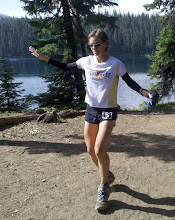The drive from Madrid went well, traffic not too bad at all. The last 25 or so kilometers into the village let me know that it was probably not a place people come to and from with much frequency. The road was in excellent shape, but it was very twisty and hilly. Completely rural, agricultural, and quiet. We saw a multitude of oak and thought perhaps it was Pin Oak. However as we got close to Las Navas, we spotted a few trees that looked like they had red bark, like a madrone. But then we realized that it was stripped of its bark, and the trees were cork oak. It appeared to be quite a business in the area.
Cork Oak that has been harvested recently
We arrived to Las Navas about 6 hours after leaving Madrid, and found Plaza de la Constitucion, 2, with little difficulty.
Plaza de la Constitucion
As instructed, I introduced myself to the inhabitants (it was actually a super market) one of whom is Francisco's uncle, and one his cousin. With much hand gesturing and broken English and Spanish, it was all worked out who was who. His cousin Jose rounded up the manager of a small inn across the plaza, and we were soon given each a large room.
Francisco's Tio
Then we took a small stroll about the village, enjoying the ability of the children to play unsupervised, dogs to be unleashed, and to amble down the middle of the narrow streets without having to dodge cars.
At 8:00 the bar below our room was sounding lively, and we joined them there. I was quickly introduced to a number of regulars, most importantly, to Antonio, the mayor of the village. One young man, David, spoke enough English to make communication more possible.
I don't recall everyone's name, but the boy is Antonio Jr., my father Charles is next, and Antonio the mayor on my left, followed by Jose (Franciso's cousin) and another regular who wondered about my pace and times for races, so he had some running knowledge.
Some local vino
We took and posed for numerous pictures, then retired to the dining, where the Mayor Antonio presented my father and me with a bounty of gifts - beautiful walking cane made in Las Navas, a T-shirt with the town name, a pin with the town crest, two key chains, and 3 bottles of local wine.
Walking stick
Some local vino
Home made sausages
Jose, Antonio, Antonio Jr., David, and I were then served plates of cheese, ham, salami, pork cutlets, rabbit, and a small ham sandwich by our hostess, Rosa. We enjoyed a very nice glass of wine and some beer as well.
Excellent pork cutlets
Warm ham sandwich
Our hostess, Rosa
Antonio, the town doctor and nurse
When we were nearly finished eating, the local doctor and his nurse Lola came in and they too wanted to pose in a picture with me. The group then discussed and asked us if we would like to have breakfast and if so what time. They said they would have it for us at 9:30 a.m.
Next morning I went out for an easy run. It was so pleasant, so secluded and quiet but for the sounds of people walking to work, children going to school, roosters crowing. I meandered through the small town, and out a country road or two, passed some men laying bricks the traditional way, on a wall surrounding a cemetery. Ever since arriving in Spain I have been struck by the number of people who labor manually. There seems to be a lot less automation and a lot more sweat, which I find inspiring.
On to Gibraltar!













No comments:
Post a Comment